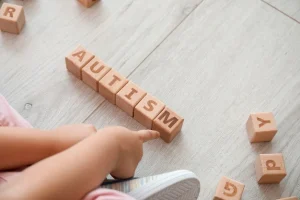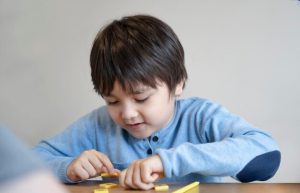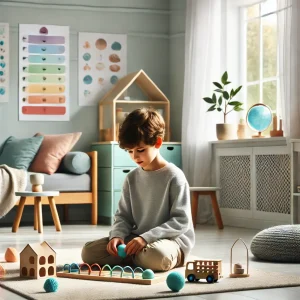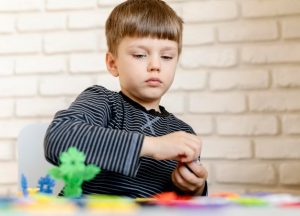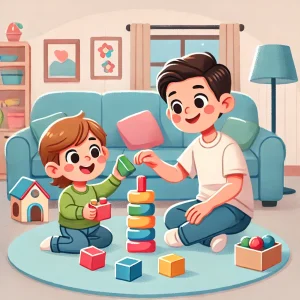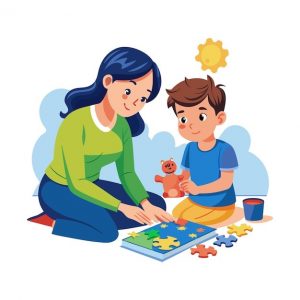The Early Years: Emotional and mental health is a concern for kids below five years
By Prapoorna M
Last Updated: November 27, 2021
According to a study, approximately 9.5-14.2 per cent of children are experiencing emotional, relational or behavioral disturbances from birth to five years of age. It is a widely known fact that young children who live in families dealing with parental loss, exposure to trauma, substance abuse, addiction, or mental illness are at high risk of developing mental health issues.
Infant and Early Childhood Mental Health (IECMH) indicates that “the developing capacity of the child from birth to five years old to form close and secure adult and peer relationships; experience, manage and express a full range of emotions; and explore the environment and learn-all in the context of family, community, and culture.”
Why is this Important?
Emotional health of infants and young children is an essential ingredient or a happy and healthy future for all children. During the early childhood years (0-5 years), there are many ways to promote emotional health, to prevent emotional disturbances, and to treat mental health problems before they become severe later in life. Early experience More than one million new neural connections develop every second in the first years of a baby’s life.
The relationships at home and the experiences that babies have right from their birth, affect them a lot. They literally shape the architecture of the children’s brain by creating a foundation on which all their future development and learning depends. Parents and caregivers who engage with their infants and toddlers in responsive, consistent, nurturing ways promote strong emotional health — also referred to as infant and early childhood mental health.
As babies mature, their emotional health supports growth and wellbeing in other essential areas including physical development and health, cognitive skills, language and literacy, social skills and even their approach to learning and readiness for school. When emotional health is compromised, development across these other areas is impacted leaving children vulnerable and susceptible to poor health, poor educational performance, compromised learning and immature adaptive skills.

Behaviors That Warrant Concern
Here is the list of behaviors that are found in children, facing mental health issues.
Infants and Toddlers (birth to three years old)
- Chronic eating or sleeping difficulties
- Inconsolable “fussiness” or irritability
- Incessant crying that cannot be consoled
- Extremely upset when left with another adult
- Inability to adapt to new situations
- Easily startled or alarmed by routine events
- Inability to establish relationships with other children or adults
- Hitting, biting, and pushing of other children, excessively
- Displaying withdrawn behavior
- Flat or No display of affection or emotion
Pre-schoolers (three to five years old)
The below are the symptoms found in toddlers of 3-5yrs of age. All or some of the symptoms can be identified if observed closely.
- Engaging in compulsive activities (e.g., play enacted in a specific order, hand washing, repeating words silently)
- Throwing wild
- Displaying the despairing tantrums
- Being withdrawn
- Having no or little interest in social interaction
- Displaying repeated aggressive or impulsive behavior
- Difficulty in playing with others
- Little or no communication
- Lack of proper language in expression
- Loss of earlier developmental achievements
- Being anxious and fearful in most situations
Why Is IECMH a Concern?
While positive early childhood experiences promote strong emotional health, negative experiences can adversely impact brain development, with serious lifelong consequences. When an infant or young child’s emotional health deteriorates, they can, and do, experience mental health problems.
If these symptoms are unidentified or left untreated, IECMH disorders can have detrimental effects on every aspect of a child’s development i.e., physical, cognitive, communication, sensory, emotional, social, and motor skills and the child’s ability to succeed in life. This hampers the overall development of the child. However, when mental health concerns are identified early, there are services that can redirect the course and place children who are at risk on a path for healthy development.
An early childhood mental health consultation system would involve a consultant with mental health expertise such as a child psychologist or child psychiatrist working collaboratively with programs such as preschools and day care centers, their staff, and families to improve their ability to identify and prevent mental health issues among children in their care.
This is of critical importance for our children today. In case, you observe any such problems in your child, please make sure you are aware about the psychological health of your child. Walk in or book an appointment with our experienced team of psychologists, speech, behavioral and occupational therapists at our Autism center.
Book your Free Consultation Today
Parent/Caregiver Info:
Client’s Details:
* Error Message
